MLB's Worst Blown Calls

MLB's Worst Blown Calls
Angel Hernandez
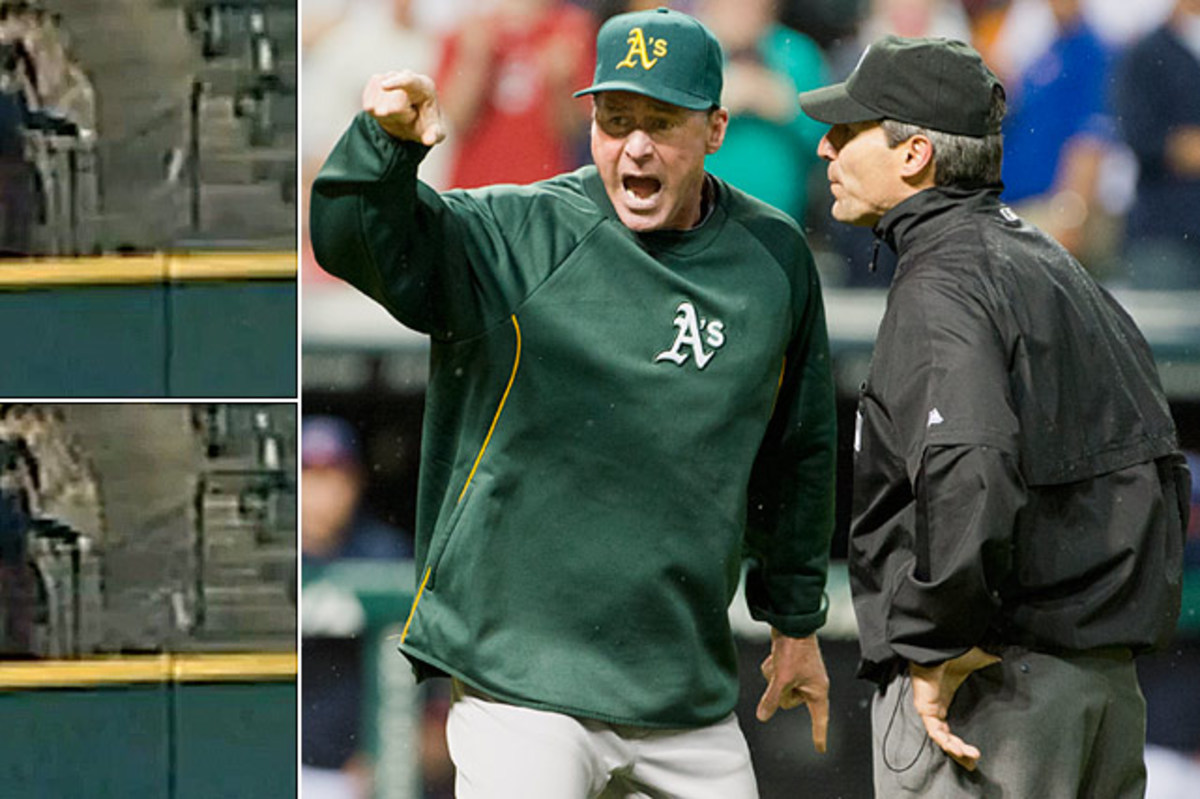
Down 4-3 to the Indians in the ninth inning, Oakland shortstop Adam Rosales hit what he, his teammates and everyone in the stands thought was a game-tying home run off Cleveland closer Chris Perez. But second base umpire and crew chief Angel Hernandez ruled the hit?which struck a railing behind the wall in left field before bouncing back onto the field?a double. The video replay seemed to show it was indeed a homer, but when Hernandez reviewed the play, he upheld his original ruling, to the shock of Rosales, A's manager Bob Melvin (who was thrown out of the game for arguing the call), and the media.
Ron Kulpa
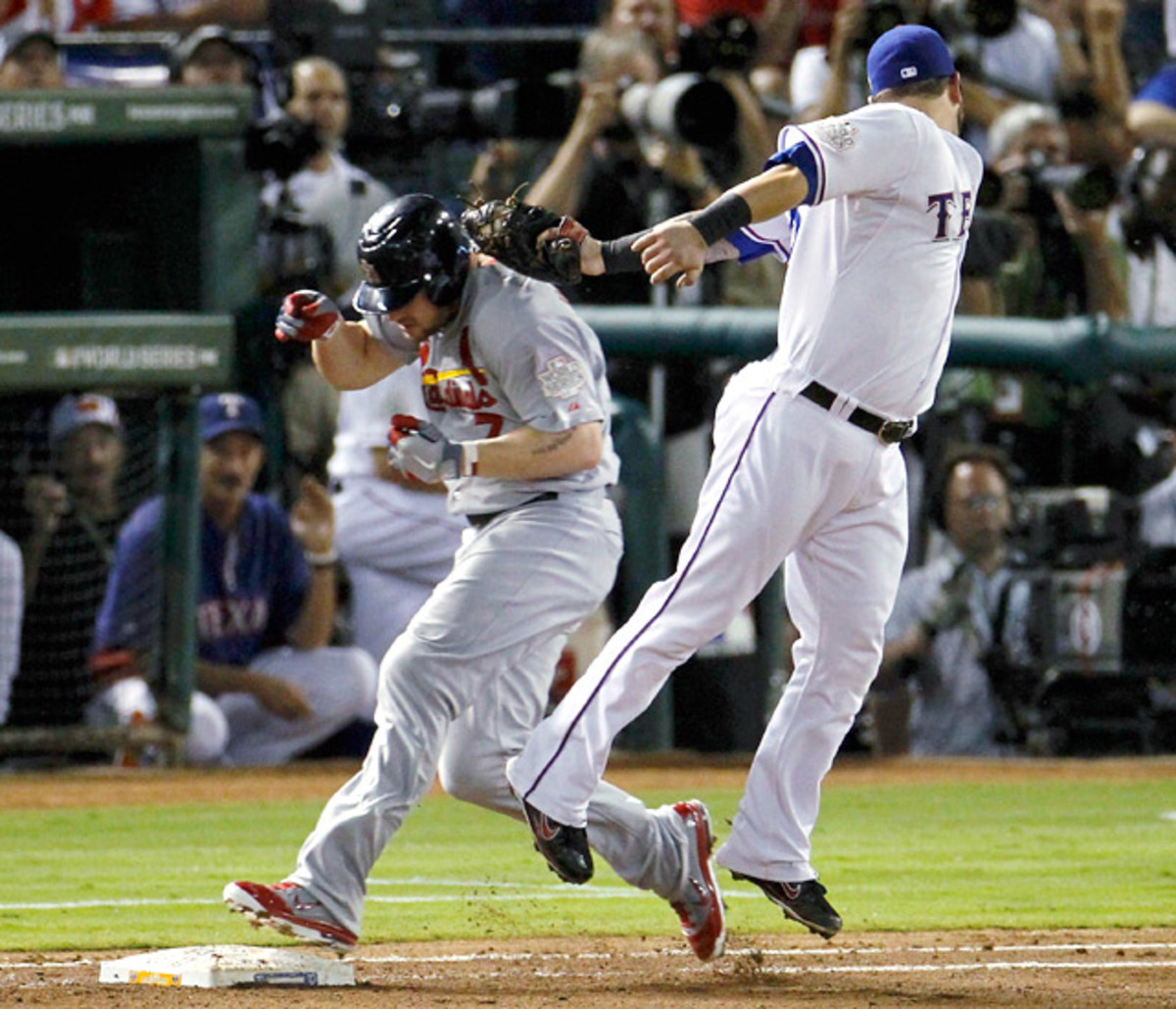
In the top of the fourth inning, Matt Holliday hit into an apparent 6-4-3 double play, but Elvis Andrus' throw from second pulled Mike Napoli off the bag. Replays clearly showed that Napoli tagged Holliday on the shoulder before he reached first, but Ron Kulpa's call stood. The Cardinals would go on to score four runs in the inning.
Jerry Meals
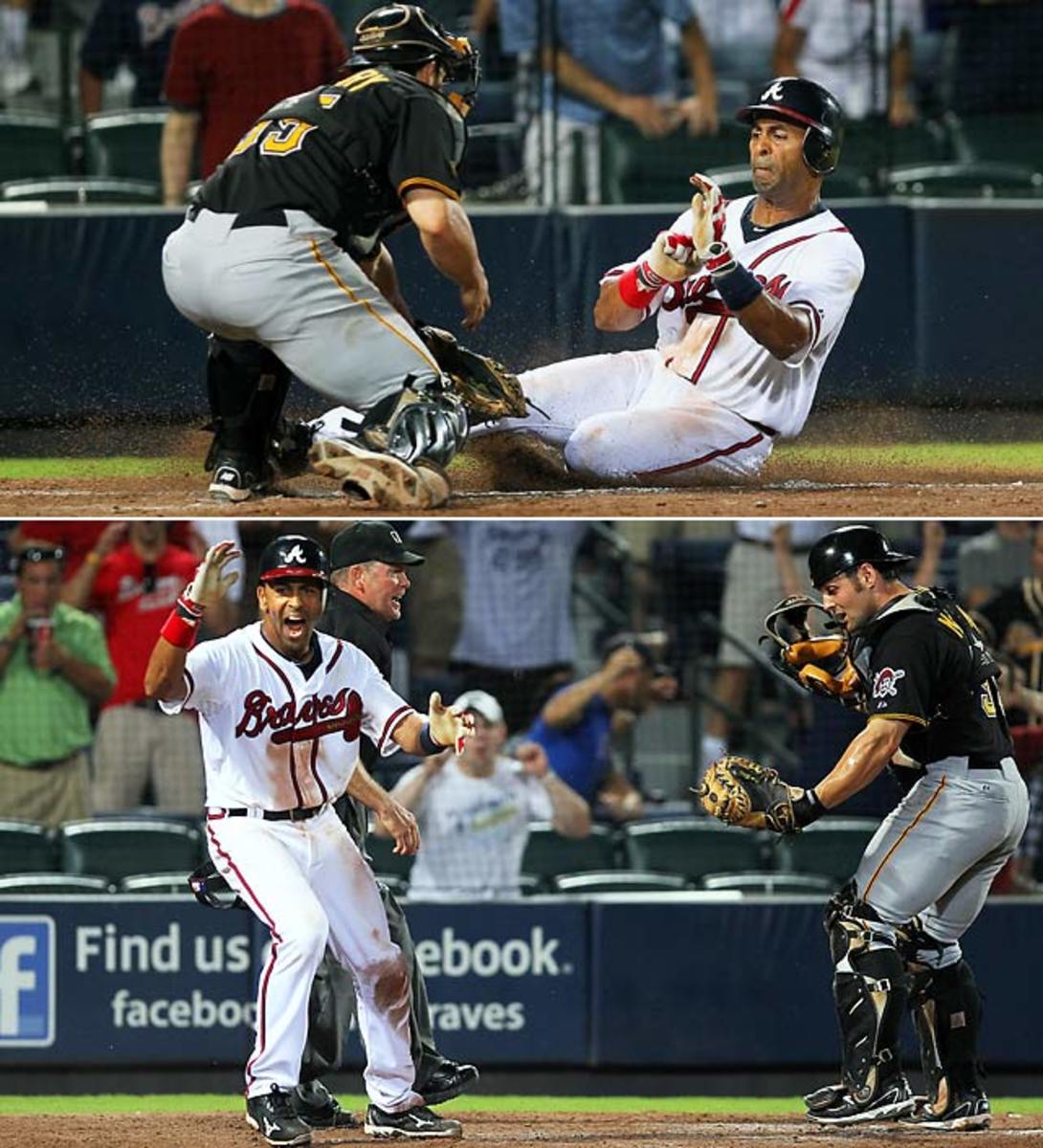
Julio Lugo scored from third base on a contested play at the plate, giving the Atlanta Braves a 4-3 win in 19 innings over the Pittsburgh Pirates. The game, which took 6 hours 39 minutes and ended at 1:50 a.m., was the longest in Turner Field history. Lugo took off on Scott Proctor's grounder to third baseman Pedro Alvarez, whose throw to catcher Michael McKenry easily beat Lugo to the plate. Lugo tried to avoid McKenry's tag with a pop-up slide. Replays indicated McKenry made the tag, but home plate umpire Jerry Meals called Lugo safe. "I saw the tag, but he looked like he oled him and I called him safe for that," Meals said. "I looked at the replays and it appeared he might have got him on the shin area. I'm guessing he might have got him, but when I was out there when it happened I didn't see a tag. I just saw the glove sweep up. I didn't see the glove hit his leg."
Jim Joyce
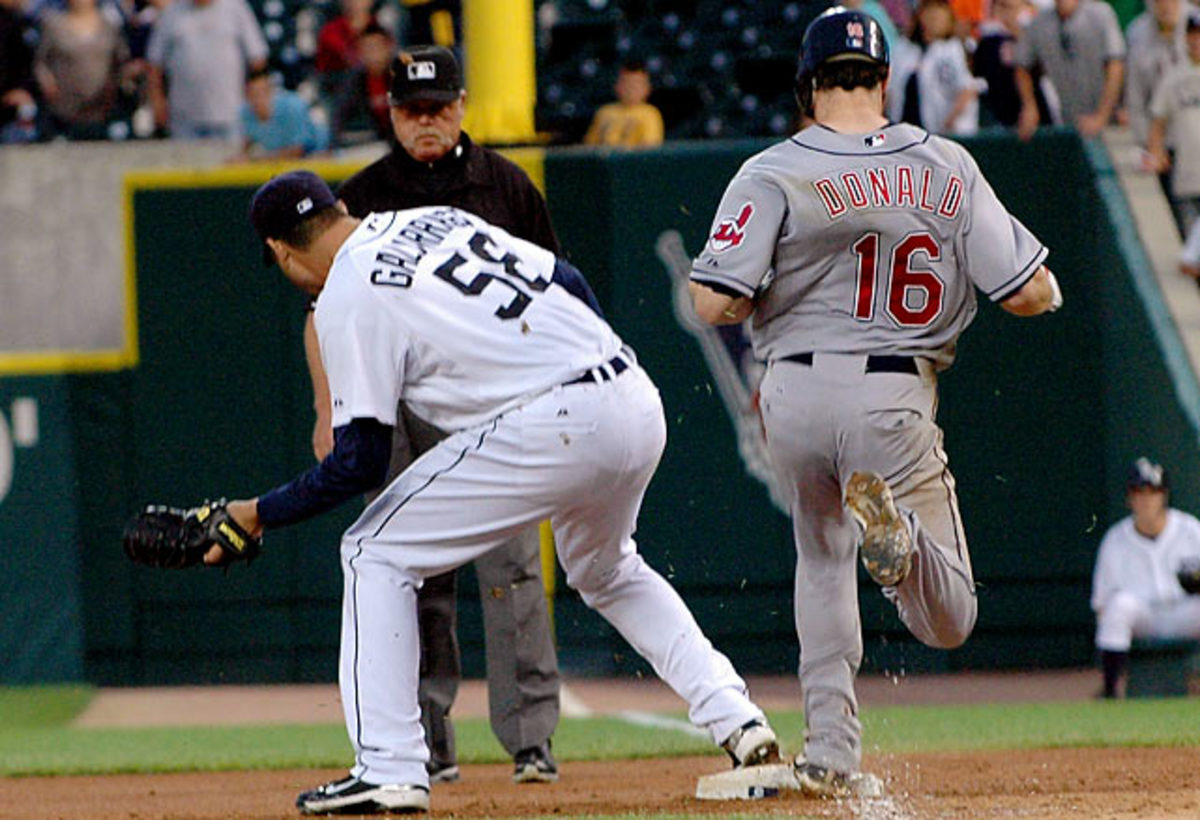
With two outs in the top of the ninth in Detroit, young Tigers right-hander Armando Galarraga stood one out away from clinching the game's 21st perfect game. A slow roller toward first base off the bat of Cleveland's Jason Donald looked like a sure out, and when Galarraga covered the bag and caught the throw from first baseman Miguel Cabrera, the celebration was on. Except that first base umpire Jim Joyce inexplicably called the runner safe, ruining the perfect game bid on a blown call. The Tigers won, but Galarraga lost his perfect game and his no-hitter, and his teammates voiced their their displeasure with Joyce on the field after the game.
Sam Holbrook
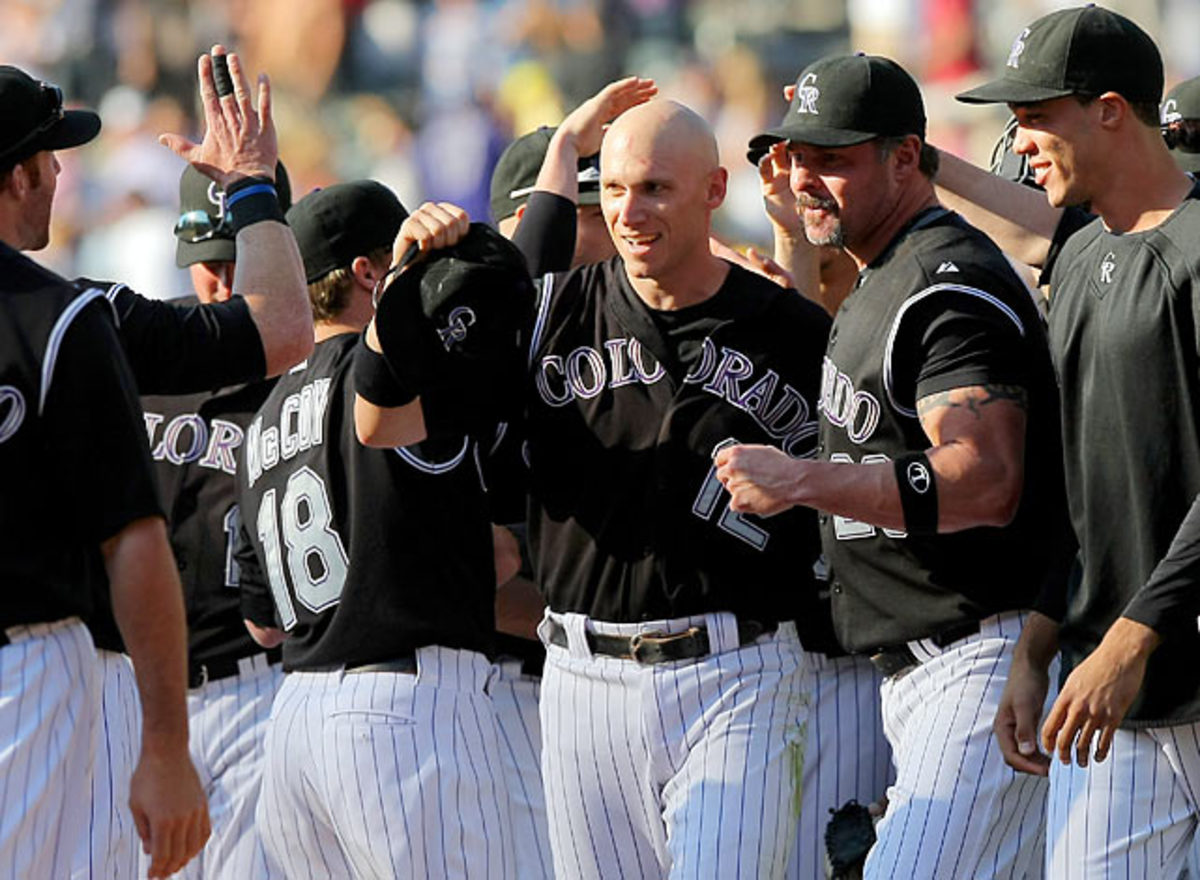
In the heat of a late September playoff run, the Rockies needed every win they could muster down the stretch. With Colorado leading St. Louis by a run in the top of the ninth inning, St. Louis' Ryan Ludwick hit a blooper to right field, where Rockies second baseman Clint Barmes appeared to make an amazing over-the-shoulder catch, then doubled up Albert Pujols from first to end the game. The win propelled the Rockies to a five-game winning streak that vaulted them into the postseason. Replays revealed, though, that Barmes never made the catch, even though first base umpire Sam Holbrook called it an out.
Tim McClelland
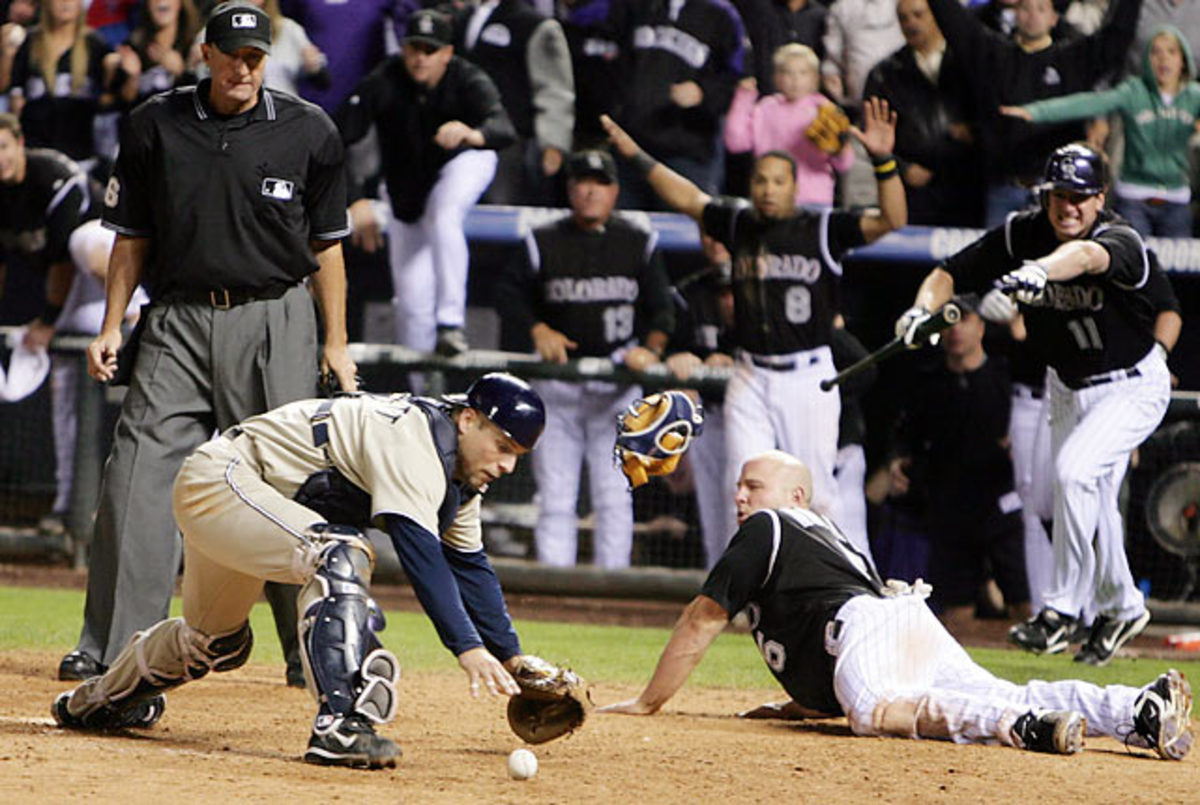
In 2007, the Padres and Rockies finished with identical records after 162 games, necessitating a one-game tiebreaker for the NL Wild Card. The game went to extra innings, and in the top of the 13th, San Diego knocked in two runs to take the lead. But in the bottom half of the inning, the Rockies rallied against all-time saves leader Trevor Hoffman. The Rockies scored the winning run when Matt Holliday tagged up from third and barreled into Padres' catcher Michael Barrett. Home plate umpire Tim McClelland called Holliday safe, but replays suggested the runner never actually touched the plate.
Doug Eddings
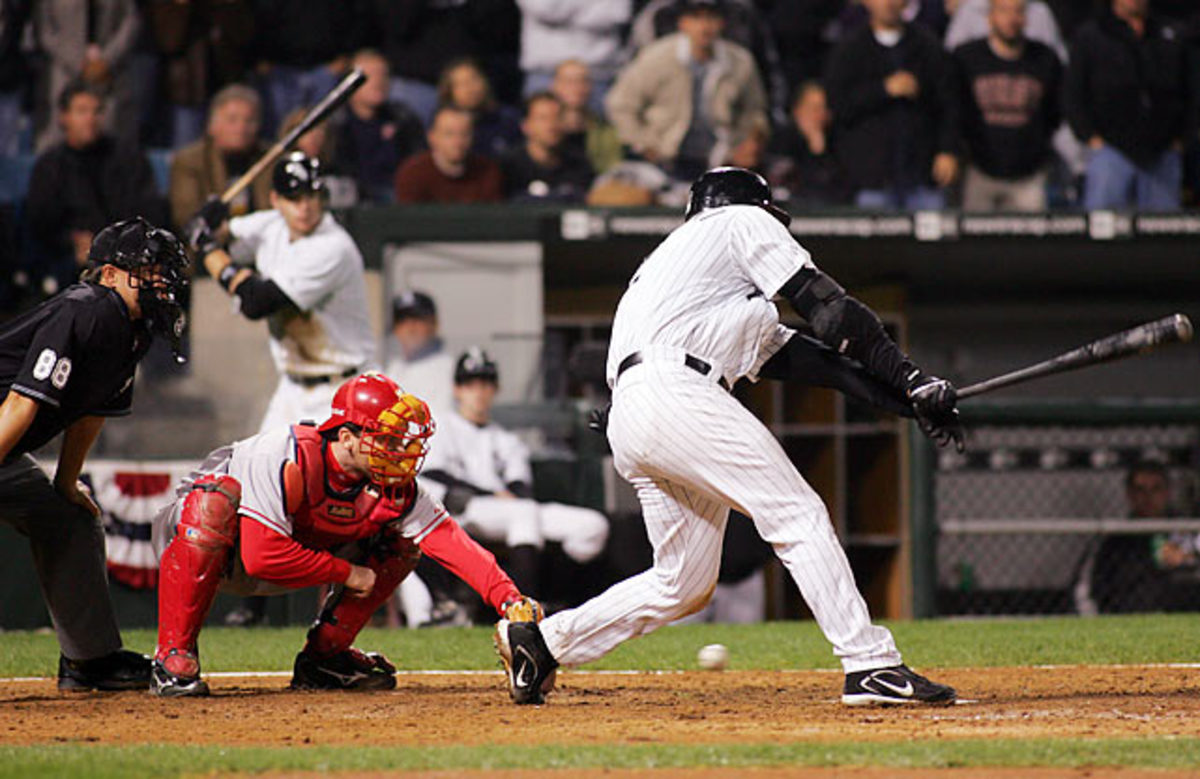
In Game 2 of the 2005 AL Championship Series between the Angels and White Sox, the score was tied 1-1 in the bottom of the ninth in Chicago. After White Sox catcher A.J. Pierzynski swung through strike three, he darted toward first base, as if there were a dropped third strike. Home plate umpire Doug Eddings made no signal of an out, despite what looked like a clear swing, miss and catch by Angels catcher Josh Paul. The call ended up costing the Angels the game, as pinch-runner Pablo Ozuna stole second before being knocked in by Chicago's Joe Crede. The White Sox went on to win the series.
Tim Tschida
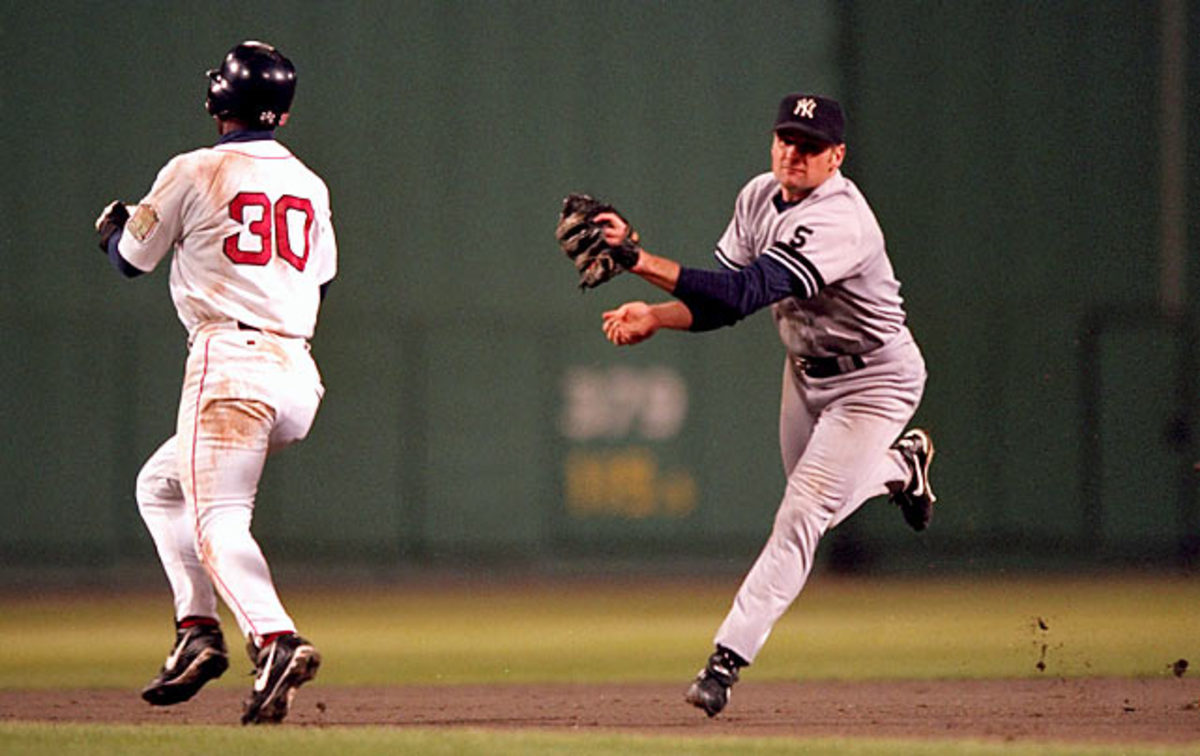
Known to Red Sox fans as "The Phantom Tag," umpire Tim Tschida blew a crucial call in the eighth inning of Game 4 of the 1999 ALCS. The Yankees led 3-2 in the bottom of the eighth but the Red Sox had a runner at first and one out when John Valentin hit a groundball to second. The Yankees' Chuck Knoblauch fielded the ball but completely whiffed on Boston baserunner Jose Offerman (who was heading to second) before throwing to first to get Valentin. This should have brought All-Star shortstop Nomar Garciaparra to the plate with a man in scoring position and two outs. Instead, Tschida called Offerman out, resulting in an inning-ending double play. The Yankees won the game to take a 3-games-to-1 series lead and finished off the Red Sox in Game 5.
Richie Garcia
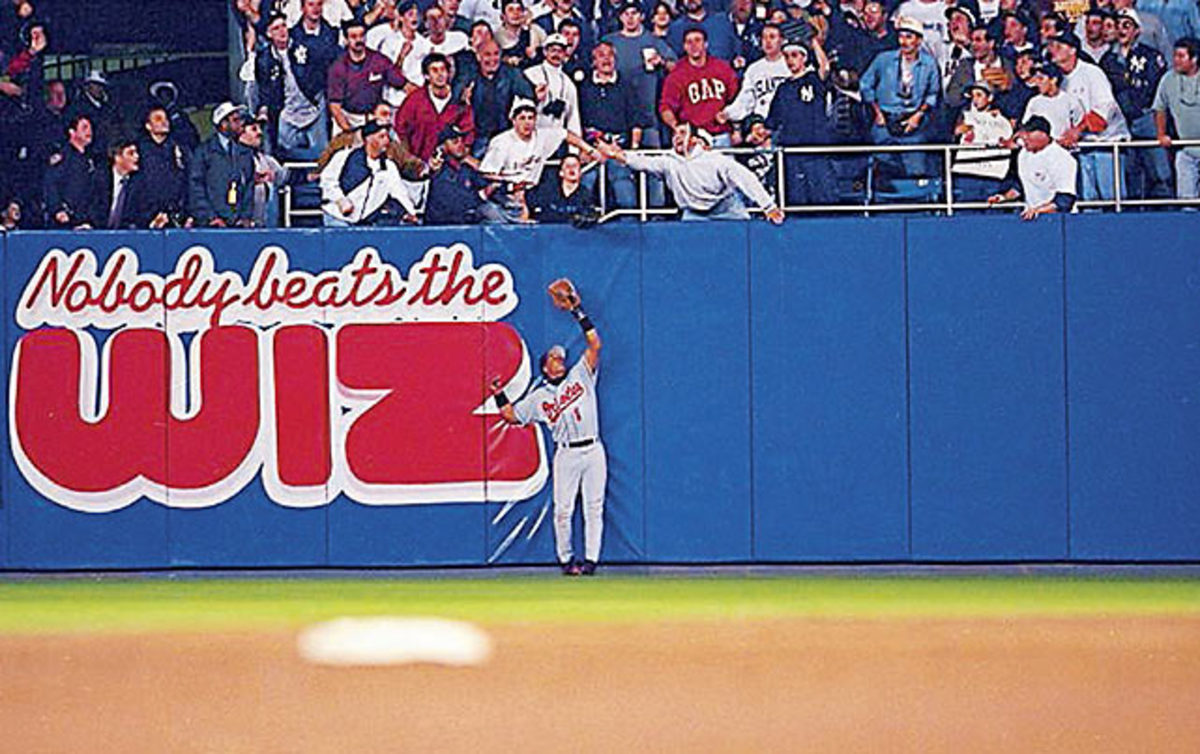
With the Orioles leading the Yankees 4-3 in the bottom of the eighth inning of Game 1 of the 1996 ALCS at Yankee Stadium, Derek Jeter hit a long fly ball to right field. As O's right fielder Tony Tarasco settled under the ball on the warning track and reached to make the catch at the wall, a young Yankees fan named Jeffery Maier reached over the fence and grabbed the ball out of the air, just above Tarasco's reach. Baltimore cried for obvious fan interference, but right field umpire Rich Garcia ruled the play a home run, and the call was held up by the rest of the crew. The homer sent the game to extra innings, where the Yankees eventually won the game and eventually, the series.
Drew Coble
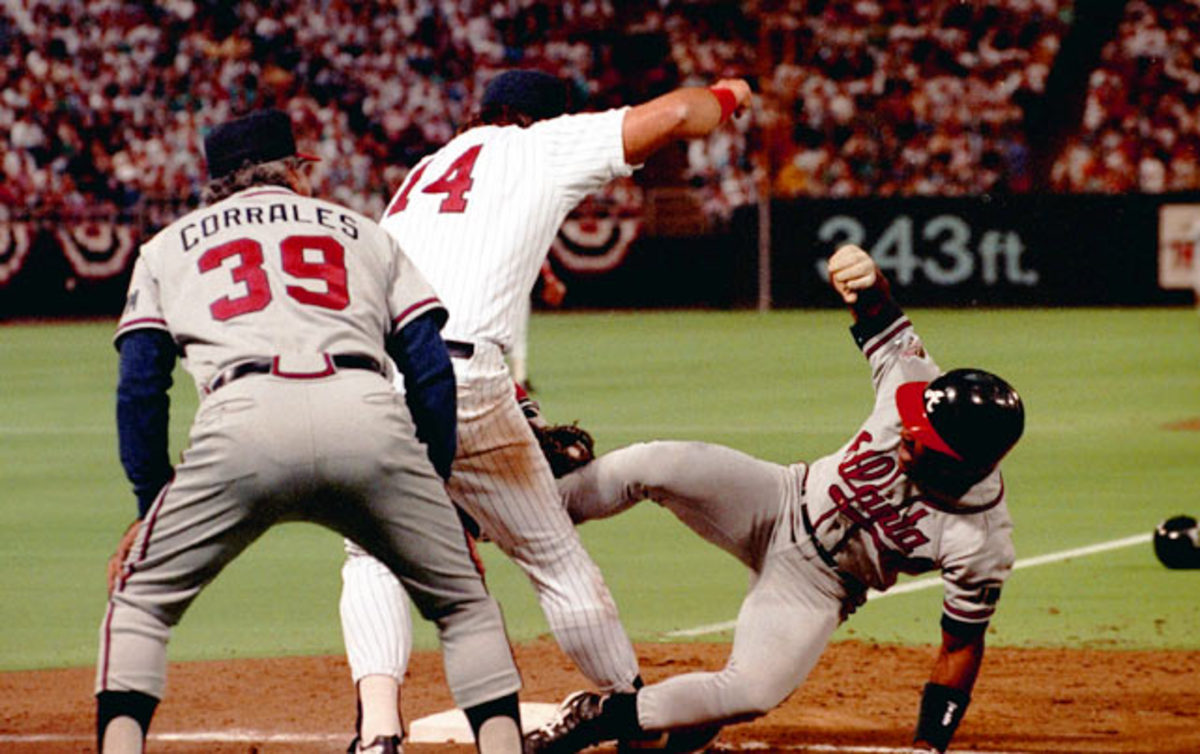
Controversy struck with two outs in the top of the second inning of Game 2 of the 1991 World Series. Atlanta's Ron Gant drilled a single to left field, but after rounding first base too wide, he had to hustle back to the bag to beat the throw. In doing so, Gant appeared to be pulled off the bag by Twins first baseman Kent Hrbek, who looked to have wrapped his arms around Gant's leg and lifted him off the base. Hrbek then tagged Gant, and first base ump Drew Coble signaled the inning-ending out. Gant argued the call in Coble's face, to the point of having to be held back by teammates. Coble maintained that Gant's momentum, not Hrbek, caused him to come off the base.
Don Denkinger
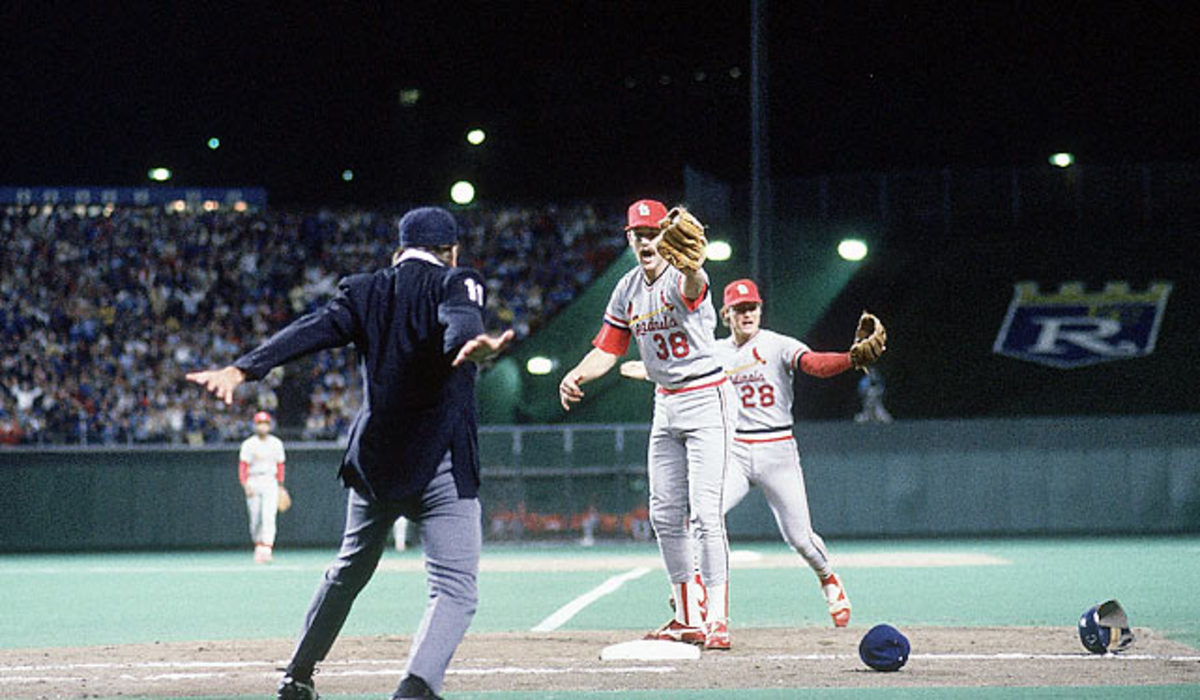
First base umpire Don Denkinger's ruling in Game 6 of the 1985 World Series is known simply as "The Call." With the Cardinals leading the Royals 3-2 in the series, St. Louis took a 1-0 advantage into the bottom of the ninth inning. Cardinals reliever Todd Worrell induced a slow roller to first base from the Royals' Jorge Orta leading off in the ninth, and an underhand toss from first baseman Jack Clark to Worrell, who was covering the bag, looked like a sure out. Denkinger called Orta safe, though replays clearly showed he was out. The dubious single ignited a two-run Royals rally that won the game. Kansas City rolled to an 11-0 win the next night in Game 7 to win its first World Series title.
Larry Barnett
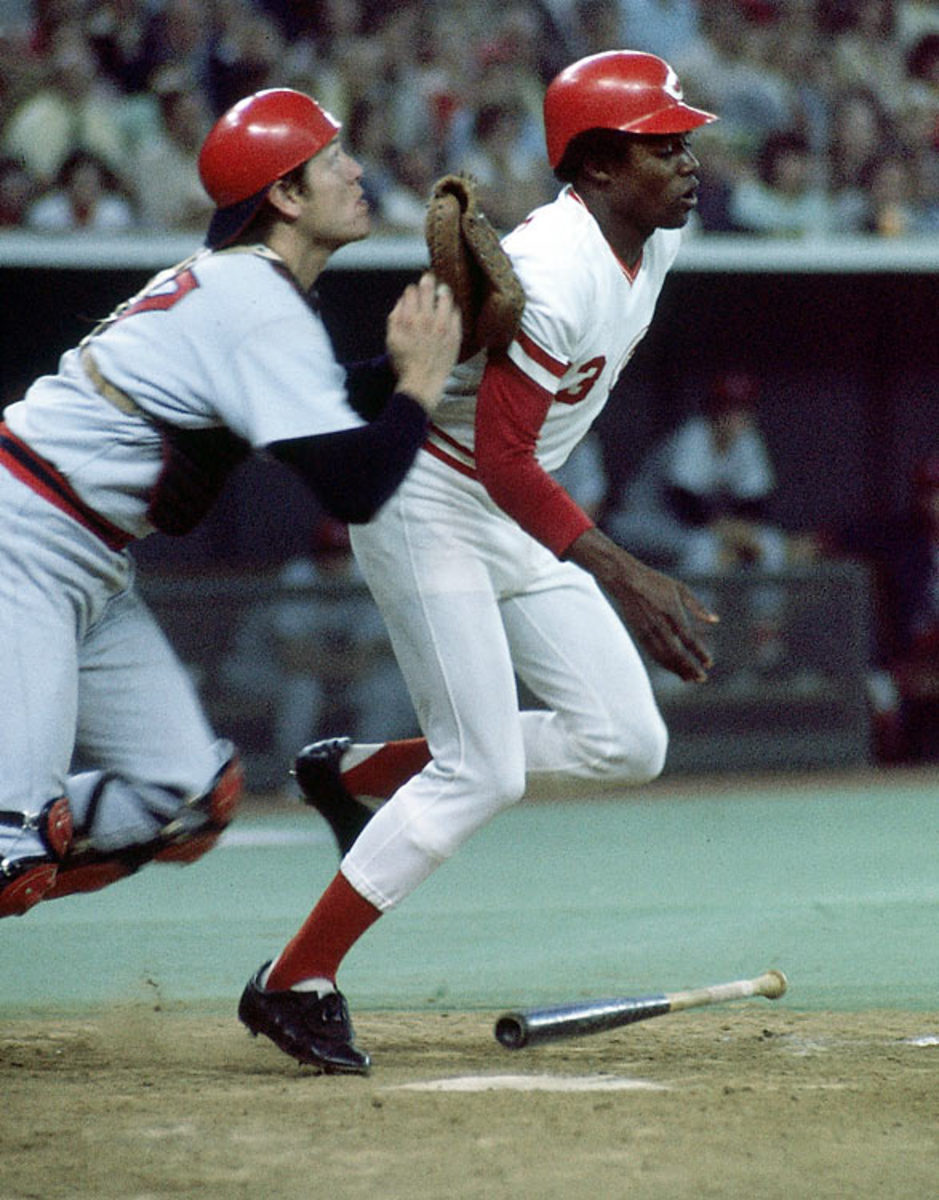
In the 1975 World Series between the Red Sox and Reds, Cincinnati's Ed Armbrister laid down a sacrifice bunt in a tie game with a runner on first in the bottom of the 10th inning. But as Sox catcher Carlton Fisk attempted to make a play on the ball and throw to second to get the lead runner, Armbrister lingered near home plate, causing a collision with Fisk and forcing an errant throw into center field. Home plate umpire Larry Barnett refused to call interference on Armbrister, despite the seemingly obvious attempt to block Fisk from making the play. The non-call eventually helped the Reds score the winning run. They took a 2-1 lead in the Series, which they won in seven games.
Bruce Froemming
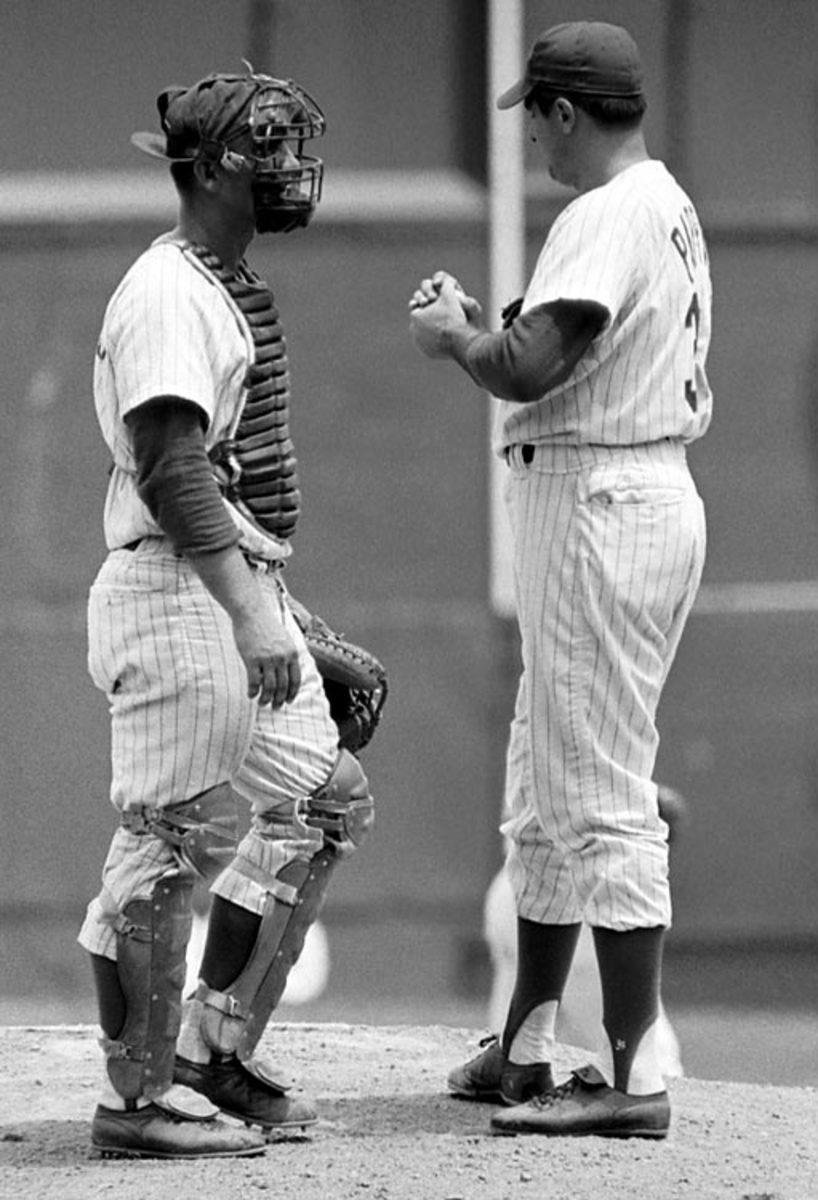
The difference in baseball lore between a perfect game and a no-hitter is significant, which is probably why Cubs pitcher Milt Pappas is still upset more than 35 years later about a call that cost him baseball immortality. Just one batter away from a perfect game against the San Diego Padres, Pappas walked pinch-hitter Larry Stahl. Pappas erupted at home plate umpire Bruce Froemming, who called two straight balls to end the at-bat. Froemming was in his second year of umpiring at the time.
